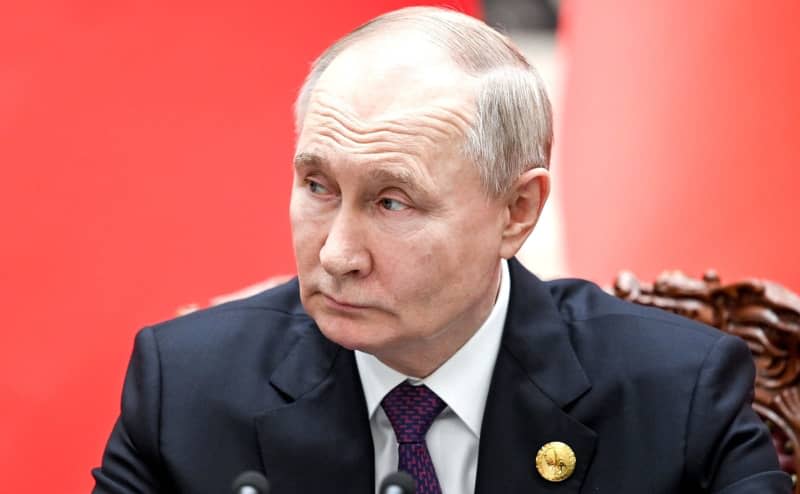Putin criticizes upcoming peace summit in Switzerland

- Oops!Something went wrong.Please try again later.
- Oops!Something went wrong.Please try again later.
The Ukraine peace summit planned next month in Switzerland is a bid to impose conditions on Russia to end the conflict, President Vladimir Putin said on Friday at the close of his two-day trip to China.
He said he had spoken with China's President Xi Jinping about the operations in Ukraine. Putin has consistently upheld his decision to attack Russia's neighbour in 2022 despite the heavy costs for both countries.
Speaking in Harbin, Putin gave no further details of the conversation with Xi, whose country has not joined international condemnation of Russia's war.
Ukraine and the West hope that China will send a representative to Switzerland in order to lend more weight to the meeting scheduled for June 15-16 near Luzern.
Russia was not invited to the meeting.
Putin criticized this, saying Russia was constantly being reproached, but did not get an invitation to the conference. His country's allies also do not see much point in the meeting unless both warring parties attend, he said.
Putin emphasised once again that Russia was ready for negotiations. He recalled that a peace agreement had been reached with the Ukrainian side in Istanbul shortly after the start of the war.
There was a finalized document that could continue to serve as a basis for talks, the Russian leader said.
Ukraine's former chief negotiator David Arakhamia previously confirmed that Moscow had only insisted on his country's neutrality at the talks in order to end the conflict.
"When we returned from Istanbul, [British Prime Minister] Boris Johnson came to Kiev and said we will not sign anything with [the Russians] - let's just fight," Arakhamia said in an earlier interview on the 1+1 TV channel.
However, a meeting between Ukrainian President Volodymyr Zelensky and Putin would have been necessary for an agreement to be signed.
Kiev also hesitated because there were no security guarantees in the event of a successful agreement, according to Arakhamia.
For Ukraine to achieve neutral status, the country's constitution would also have to be amended and the course of NATO accession would have to be cancelled. The provisional agreement would have included Ukraine possibly ceding some territory as demanded by Russia.

